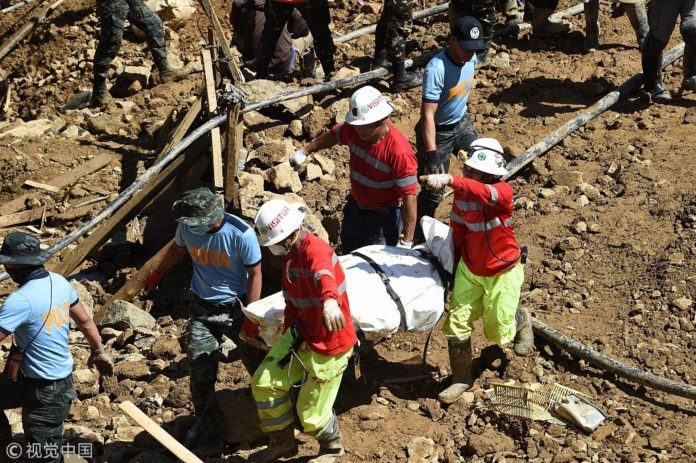MANILA, Sept. 24, 2018 (BSS/XINHUA) – The death toll in the two major
landslides that struck the Philippines last week has climbed to 95,
authorities said.
As of Sunday night, officials said a total of 49 bodies have been pulled
out of the rubble in the mining town of Itogon, Benguet province in the
northern Philippines, while a total of 46 bodies have so far been retrieved
from the landslide that also hit a community at the foot of a quarrying site
in Naga City in the central Philippine Cebu province.
In Itogon, disaster officials said at least 19 others are still missing
after mud and boulders crashed on a bunkhouse where dozens of small-scale
miners and their families sought refuge as super typhoon Mangkhut barreled
the Philippine main Luzon Island on Sept. 15.
Rescuers are continuing their retrieval efforts to locate 40 others still
missing in the Naga City landslide that buried some 30 houses around 6 a.m.
last Thursday.
Disaster officials counted nearly 200 deaths in typhoon Mangkhut and the
twin landslides that struck the Philippines last week.
Nearly 1.6 million farmers and fisherfolks were affected by Mangkhut, the
strongest typhoon to hit not only the Philippines but the region this year.
Data showed that 80 to 90 percent rice and corn crops were destroyed in the
affected area, not only jeopardizing food supplies, but also devastating poor
farmers who were counting on their upcoming harvest.
Other livelihoods such as mining are also severely impacted in the
typhoon’s aftermath.
Indeed, the Philippines is one of the most disaster prone countries in the
world.
Annually, an average of 20 tropical cyclones enter the Philippines each
year of which around six to seven cause significant damage.
In 2013, super typhoon Haiyan devastated the central Philippines, killing
more than 6,000 people. In 2009, typhoon Ketsana also caused massive flooding
in Metro Manila, killing more than 700.



